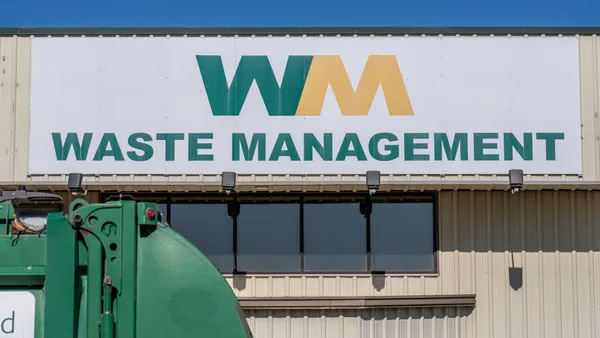Dive Brief:
- Glencore, a European commodities trading and mining company, completed its acquisition of lithium-ion battery recycler Li-Cycle, the company announced. It had submitted a $40 million bid for Li-Cycle's assets on May 14, shortly after the company initiated a bankruptcy process.
- Toronto-based Li-Cycle built and operated three facilities in the U.S., one in Canada and one in Germany before experiencing financial distress. The facilities have a total combined processing capacity of 61,000 metric tons of battery material annually, though only the German site is currently running, according to court filings.
- The company's fall came as the Trump administration turned away from funding many clean energy projects in the United States. While Li-Cycle was close to receiving project financing from the U.S. Department of Energy, it struggled to drum up the equity it needed to access that capital over concerns about the new sustainability landscape.
Dive Insight:
Once among the vanguard of battery recyclers in the United States, Li-Cycle has fallen on hard times amid cost overruns at its ambitious hub project in Rochester, New York, which never began operations. The company faced a mechanics' lien on the facility from general contractor MasTec, among other outstanding debts.
Glencore did not respond to questions about its future plans for the Li-Cycle facilities, referring Waste Dive to its announcement of the deal’s closing. The company has been expanding its presence in battery supply chains in recent years, in part through a growing relationship with Li-Cycle.
The two companies inked a supply and offtake agreement for Li-Cycle’s North American facilities in 2024. In Europe, the two also collaborated on Li-Cycle’s German spoke facility and a planned hub in Italy, for which Li-Cycle had secured property prior to its bankruptcy. The company began operations at its German facility, one of its largest, in August 2023.
Glencore provided financial support to Li-Cycle in 2022 and was the company's only secured lender by the time of the bankruptcy process. The two companies reached a $200 million financial agreement in 2022 and a $75 million financial agreement in 2024.
Li-Cycle has operated several "spoke" facilities that were meant to operate in conjunction with the Rochester hub. They include facilities in Kingston, Ontario; Gilbert, Arizona; and Tuscaloosa, Alabama. Today, the spoke facilities are idle. Another spoke facility in Magdeburg, Germany, remains in operation with 66 employees.
Li-Cycle paused construction on its first planned commercial hub in Rochester in 2023. The facility, which began construction in early 2022, was initially envisioned with an annual capacity of 35,000 metric tons of black mass and equivalent feedstocks. The company had initially expected the facility to cost $560 million, but later projections put the facility's cost at close to $1 billion.
The company anticipated providing the North American market with the first source of recycled, battery-grade lithium with its Rochester hub. The project drew attention from the DOE — Li-Cycle received a conditional loan commitment of $375 million through the agency's Advanced Technology Vehicles Manufacturing program in 2023. That commitment was upped to $475 million a year later.
In order to access the funding though, Li-Cycle needed to provide a certain level of equity. The company had $89.7 million in commitments by the end of 2024 that it needed to pay, and it also needed to put up about $173 million in reserves for the project, about half of which could be satisfied through letters of credit. But Li-Cycle couldn't come up with the necessary funds before it initiated bankruptcy proceedings.
Li-Cycle contracted with Moelis to search for investors willing to help it meet the requirements for the DOE loan facility. But those efforts were unsuccessful. Moelis found that besides Li-Cycle's debt structure, potential investors were also spooked by “uncertainty related to the current U.S. federal administration and potential impacts on DOE-related funding” and the outlook for the EV and battery materials market.
By the end of 2024, Li-Cycle's assets were worth $861.2 million, more than half of which is associated with plant and equipment assets at the Rochester hub. Its liabilities totaled $598.1 million.
Following the bankruptcy, Li-Cycle’s staff declined to 119 employees globally, including 37 in North America serving mostly corporate roles, according to court filings. That was down from a global peak of 536 employees as of Sept. 30, 2023. The company was set to have 25 employees at the time of the deal closing, who are expected to be laid off.
Other battery recycling projects in the U.S. have also turned away from DOE funding. Redwood Materials, which has avoided some of the financial difficulties facing the industry, told Waste Dive in April that it no longer needed the funding. Redwood has raised $2 billion in private funding since receiving a DOE loan commitment, according to a spokesperson.











